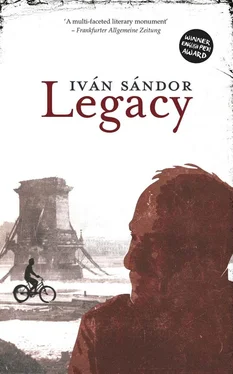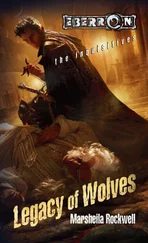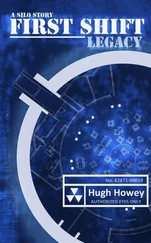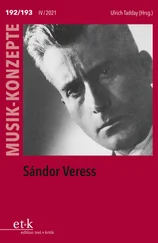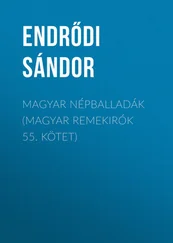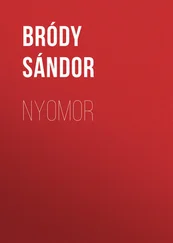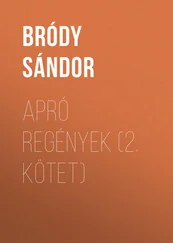Forty kilometres a day.
The dead and dying in ditches at the roadside.
Luca told me a number of things about Miklós — not at times Györgyi had been present, perhaps later. She needed to talk to someone about things that had suddenly come to mind.
Years after that photograph of the two of them on the terrace at the lake had been taken, Klári asks Luca if she thinks it would be permissible for her to marry Miklós. All Luca says is that she had read — in my own notes that had been dug out to prepare for the meeting with Györgyi — that it was OK. This has very little relevance nearly quarter of a century after that note was made, I wrote a few days ago in fibre-tip pen next to my old note.
That was probably an error on my part.
From what I am trying to put together from the shards of the mosaic, one may presume the man and woman in the photograph do not just happen to be looking mutely at the same indeterminate point, where they see the same thing, but presumably they keep quiet about it because they had already discovered what, on studying their faces a half-century later, I would call an acquiescence to incom municability. One cannot read from the looks that that man would for years attempt to carry off the unspeakable spectacle and moreover that the woman knows this. And she also knows it when they embrace one another as a married couple and even at night she is unable to free herself from wondering whether the man, now her husband, made love just as vigorously with Ági. The spectacle of the shaven napes of both Ági and her mother still looms before her, and the man senses something of that; he is acquainted with what it is like to take silent leave of someone who has started on the death march. He carries on hugging his wife and meanwhile sees in his mind’s eye a pair of dead eyeballs. He is also familiar with the laborious process of straightening out a body with rigor mortis. On the farmstead near Kassa, while the front line sweeps over, he looks for a spade so he can dig a grave for his friend who has died of dysentery, but all he can find is a crowbar with which he spends a day scraping out a shallow pit then gathers a few handfuls of earth to sprinkle over the corpse.
For years after the first meeting, which is preserved by the photograph, Klári had no wish to meet Miklós again, nor he to meet her. Later Klári asks Luca whether it would be all right to marry Miklós.
She dare not ask her husband while they are lying with fingers clasped whether he had lain the same way with Ági; from the man’s silence she senses it was just the same. Had Ági also wanted to make love again as quickly as she did, and had he done so with her just as he had with Ági? That is something they never speak about. Klári stifles the question that is about to slip from her lips. Miklós senses what she must be thinking and is grateful that she says nothing, and nine months after this evening Györgyi is born. When Klári and Györgyi are wheeled out of the labour ward and Miklós bends over them their shared thought is that they have avenged themselves for everything by giving life to their daughter, and the fact that this is what they think about in the hospital corridor also means that, although both of them are well aware it is not a ‘normal state’ (they speak about it later in just those words), they are unable to suppress it, but still it is better not to keep on torturing one another with it.
Klári could not have claimed that the reason she was unable to discuss what happened in the camp with Györgyi was because she would then have had to say why her father and she could not stay together — or rather, the reason she could not speak about why they had been unable to stay together was because then she would have to speak about what happened in the camp.
She did not want to talk about dreams.
I thank the waitress for her assistance and leave her 300 forints as a tip.
This story is like good literature, I note down, full of doubts and uncertainties. I have lived the greater part of the years of my existence, and I can see that the reason I have devoted my life to writing is that I am trying to counter transience. I have to see things with the eyes of many in order that my own should remain sharp.
At reception the young man comes to meet me. He gives me two photographs. One is a shot he took of the second-floor room, the other from the window. He says he noticed to which part of the street I was paying particular attention.
So quick?
I did say that I’m a photographer, sir. There is a handy room and equipment here.
I thank him and say nothing about the fact that everything in the pictures is bright and sunny, in contrast to my memories.
I stand for a while at the entrance.
Where could Györgyi have travelled to so unexpectedly?
I read the prices on the menu displayed next to the entrance.
On the wall is a marble plaque:
To the memory of Lajos Gidófalvy, 1901–1945, and men of the 1st Battalion 13th Regiment Military Police, saviours of the Jewish boys’ orphanage which stood on this site under the International Committee of the Red Cress and on 24 December 1944 came under Arrow Cross attack.
Vera and I were no longer there by that time.
Three or four days after we had been lined up the Red Cross admitted a new group into the building. The Arrow Crossers and gendarmes came for them, too, on that Christmas Eve.
I read through the text on the plaque once again.
I set off along the route that our own procession had started along: Délibáb Street, Bajza Street then turn right along the Alley towards Lövölde Square and the city centre.
At Lövölde Square I tell Vera that we’ll skip off when we get the chance. Right now we are not required to run; we are not being forced so much as herded into the square. From time to time there is a shout of ‘Close ranks!’ as the column spreads out and the smaller ones become detached. Our escorts seem to be less vigilant, taking care only that those who cannot keep up and are left at the back do not get behind the two gendarmes who form the rearguard.
The third person in our line is the boy with the clown face. He has latched on to me ever since I gave him the square of chocolate.
In Lövölde Square I see no signs of interest in the looks of the passers-by watching us. They must have got used to seeing columns like ours. Clown-face does not have a knapsack nor a suitcase or satchel; he dangles a small bag in which there are handkerchiefs, a scarf and a pair of socks.
Vera, standing on tiptoe, tries to make out where Edo and Judy are. The smallest children are walking in a separate group in front of us; there must be about twenty of them, surrounded by carers with Red Cross armbands, some of them resting as they are carried in their arms. I spot Edo and Judy and wave to them.
Vera seems to be getting ever smaller and more pallid. I don’t know where her beret is; maybe it’s in her little suitcase. She has pulled the warm headscarf right down to her eyes — that is what is making her head look smaller.
Clown-face woke up every night and went to the window. The first time I got up and went over to him, but then I contented myself with watching from under my blanket. I have no idea why he stood by the window, nor do I know why I woke up each time he woke up.
Ack-ack guns in Lövölde Square. Barbed-wire obstacles have also been positioned, and children are jumping about around them. A squad of gunners to man the guns; a pile of bayonets and rifles. The soldiers allowed the children to throw snowballs at them, and one of the bigger boys can scramble on to one of the guns. The others would like to do the same, but the commanding officer, a sergeant, forbids that.
Читать дальше
